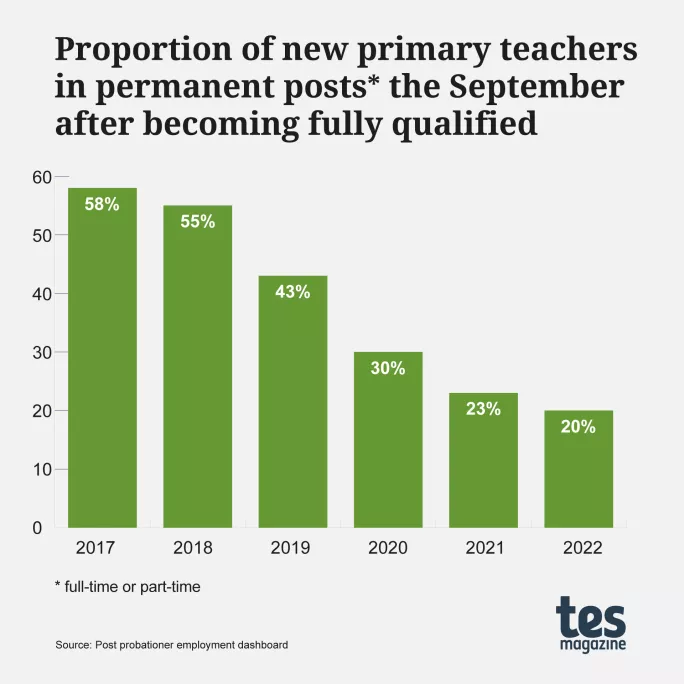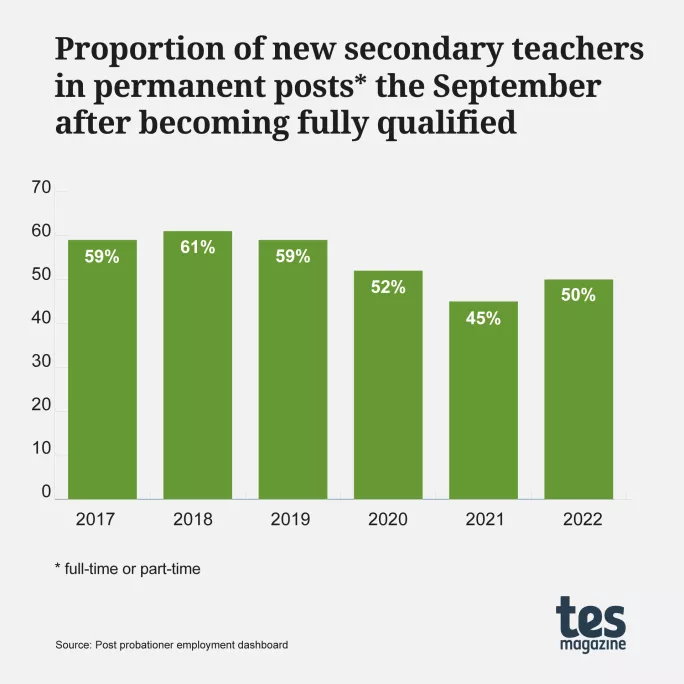Teacher recruitment failings: what is happening in Scotland?

“The more confident councils are in their budgets, the more permanent contracts there will be - that is an iron law.”
That’s what Scottish government adviser and former senior chief inspector of education Graham Donaldson told me when I was writing a recent Tes Scotland investigation into why the government continually fails to get teacher numbers right.
The latest example of the real-life impact this has is, of course, the plight of 130 teachers in North Lanarkshire.
These staff - 80 primary teachers and 50 secondary teachers - were told late on Friday, via email, and just days before the summer break, that they would not be offered temporary or fixed-term contracts from August.
Scotland’s largest teaching union, the EIS, says the situation is not unique to North Lanarkshire and that “precarity and lack of job security is endemic across Scotland” - even though “class sizes are full to bursting and when there’s insufficient support for children and young people with additional support needs”.
As ever, the Scottish government points the finger of blame at councils - and councils point their fingers back at the government.
- Background: No-warning emails to teachers ‘show job insecurity’
- Related: Big drop in post-probationers finding work in Scottish schools
- News: EIS backs industrial action over teachers’ contact time
The government told Tes Scotland it had provided “an additional £145.5 million in this year’s budget to protect increased teacher numbers” and that this cash “provides assurance of funding for councils and removes this as a barrier to employing staff on permanent contracts”.
But North Lanarkshire Council said its government funding for teacher recruitment had “fallen substantially”.
The council explained that in the past two years there had been a £1.8 million reduction in funding owing to a reduction in pupil numbers. Also, the council’s share of Scottish government’s Strategic Equity Funding - most of which had been used to recruit additional teachers - fell by £2 million for 2023-24.
Strategic Equity Funding is shared across all 32 councils and is part of the pot of money made available through the Scottish Attainment Challenge.
Before 2022-23, this funding pot was shared among just nine councils - the so-called “challenge authorities” - but the government changed its approach when it refreshed the attainment challenge, and now all councils benefit.
However, those that were previously among the nine select challenge authorities, including North Lanarkshire, have seen some big drops in funding.
Councils also say that the recent teacher pay deal means that the same funding buys you fewer staff and that attainment challenge funding - be that the Pupil Equity Fund money that goes direct to schools or the Strategic Equity Funding - has not risen to keep pace with inflation.
At the same time as councils say they have less money to recruit teachers, student teacher numbers are being kept artificially high because of the government’s promise to increase them by 3,500 over the course of the 2021-26 Parliament.
But data shows new teachers’ job prospects getting worse, not better - particularly in primary.
Last year, just one in five newly qualified primary teachers had a job the September after becoming fully qualified - so in their first year as fully fledged teachers, just 20 per cent of new recruits had a permanent full-time or part-time post. That’s down from 58 per cent in September 2017.

The picture is better for secondary, but the prospects for new starters in this sector have also worsened of late.

Douglas Hutchison, president of education directors’ body ADES and Glasgow City Council education director, says the teacher numbers pledge is out of step with the financial reality faced by councils and should be “reviewed”.
Speaking to Tes Scotland today, he said: “I’m not sure how realistic an additional 3,500 teachers is with the current fiscal position. That was a manifesto commitment that was made before the fiscal position deteriorated significantly. I think every commitment like that needs to be reviewed in the context of the present reality and not the reality as it existed at the time.
“So, I’m just not sure where the money is going to come from in order to find 3,500 extra teachers.”
However, if the government were to deliver on its promise to reduce teacher class-contact time by 90 minutes a week, there would likely be more than enough jobs to go around.
The silence from the government on that front has become increasingly noticeable: at the EIS annual general meeting earlier this month there was a call for the education secretary Jenny Gilruth to “say more about when and how the manifesto promise [on] contact hours will be implemented”.
The union backed industrial action if the promise was not delivered, with delegates pointing out that so much hinges on schools being better staffed - from effectively addressing behaviour to reducing teacher workload.
The situation in North Lanarkshire reminds us also of the human cost of failing to deliver. Without progress, there will be ever-increasing numbers of highly qualified professionals living with uncertainty - and wondering how they are going to pay the bills.
Emma Seith is senior reporter at Tes Scotland. She tweets @Emma_Seith
You need a Tes subscription to read this article
Subscribe now to read this article and get other subscriber-only content:
- Unlimited access to all Tes magazine content
- Exclusive subscriber-only stories
- Award-winning email newsletters
Already a subscriber? Log in
You need a subscription to read this article
Subscribe now to read this article and get other subscriber-only content, including:
- Unlimited access to all Tes magazine content
- Exclusive subscriber-only stories
- Award-winning email newsletters
topics in this article



